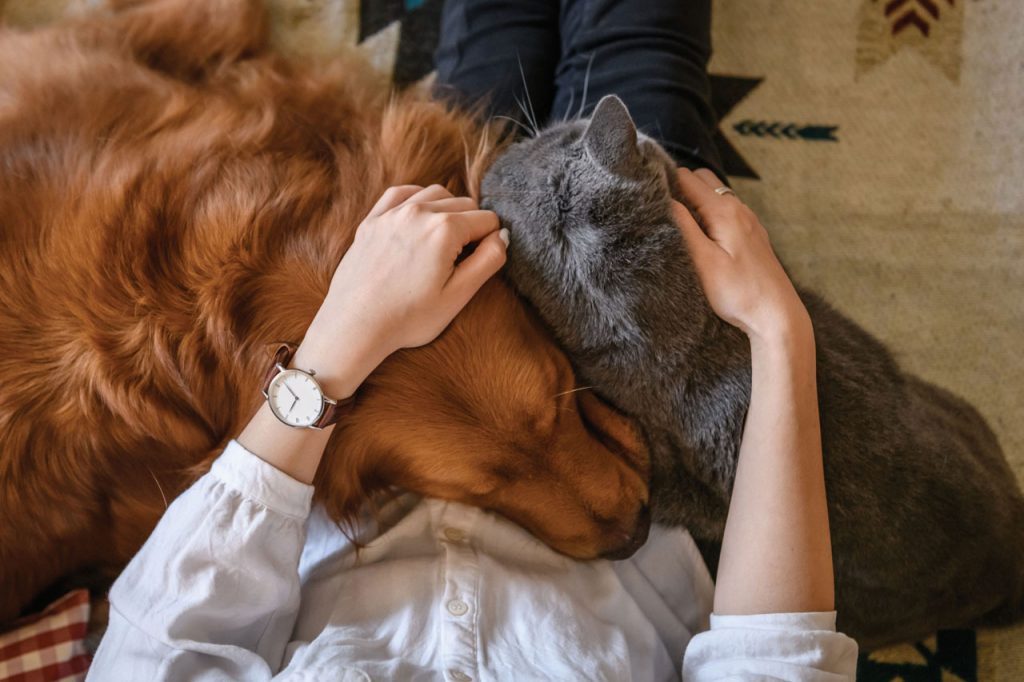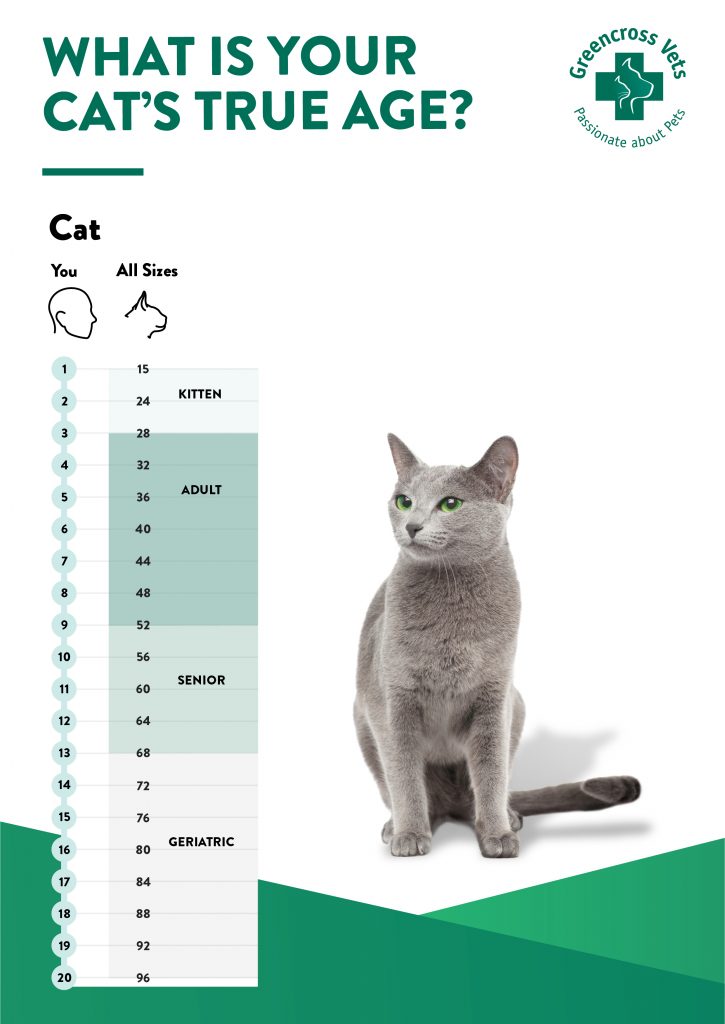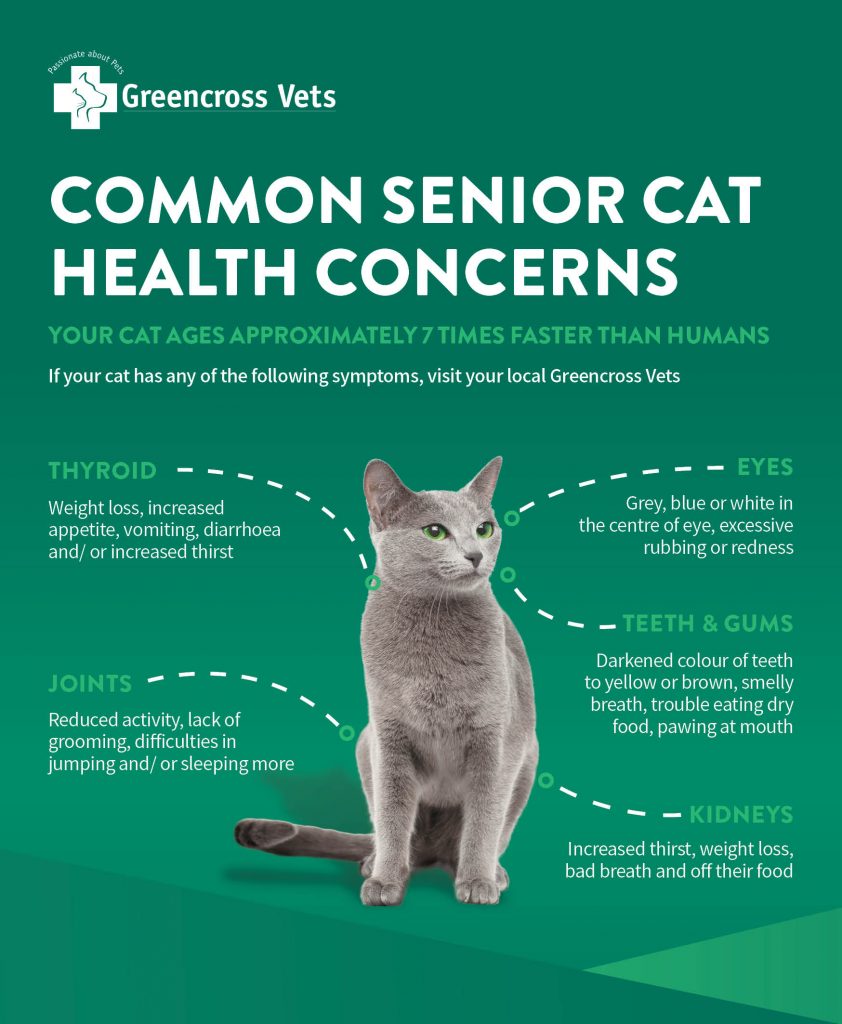Did you know?...
The average cat has a lifespan of approximately 15 years . Advances in veterinary treatments and nutrition alongside a tendency to keep indoor-only cats means that cats are enjoying longer lives. Even though they may be young at heart, cats over the age of seven years old are considered a senior pet. As they age, a cat’s dietary, exercise, and healthcare needs will change, so it’s important that you monitor these changes closely. With special care and attention, you can help your feline age gracefully.
Senior cats are susceptible to a number of diseases. The most common are kidney disease, diabetes, abdominal tumours, thyroid disease, heart disease and arthritis. Being able to detect changes in your cat’s behaviour and habits early and notifying your local pet care team will help to reduce serious long-term health issues.

Health concerns to be aware of as your cat gets older
You know your cat best, and you may be the first to notice if something is not quite right. Always pay attention to changes in your cat; they hide their feelings well, so if they’re ill or something is wrong, it can be hard to identify. As cats get older, they can develop certain health issues.
Health issues; Some of these include
- Arthritis or mobility issues
- Heart disease
- Kidney disease
- Cancer
- Liver disease
- Diabetes
- Thyroid conditions
- Abdominal tumours
- Dental issues
If your cat has changed their behaviour or seems unwell, don’t delay, book them in for a health check. A veterinary health check can help detect issues before they become too serious.
Some of the signs to watch out for
- Increased thirst or urination / Difficulty using the litter tray
- Increase or decrease in appetite
- Lethargic behaviour – reluctance to move around
- Reluctance to jump up on beds or couches
- Changes to their skin or coat e.g. lumps or bumps
- Increase or decrease to their weight
- Vomiting
- Difficulty grooming themselves or matted areas
- Hissing more when touched or patted / grumpiness
- Meowing more, especially at night
- Sleeping more than usual
- Breathing difficulties
If you’re concerned about your cat’s health, book a health check up today at your local Greencross Vets.

Greencross Vets recommends that healthy older cats be examined by a veterinarian at least twice a year. Pets age much faster than we do, and six months for a senior cat is similar to three years for us, which is a significant amount of time for health problems to creep up. Talk to your local Greencross Vet for more details. In addition to regular health checks, there are many things you can do at home to ensure your cat’s wellbeing.
Care at home
Making small adjustments to your pet’s home environment can assist them as they start to show signs of ageing. Things to consider when living with a senior feline could include:
- Providing easy access to food and water
- Keeping them cool in summer and warm in winter
- Comfortable supportive bedding that is easy to get in and out of
- Regular grooming to avoid matted hair and knots
Nutrition
As our cats age, you may notice they become less active and start spending more time indoors. Their metabolism also changes, making it harder for them to digest higher levels of protein and fat found in kitten and adult cat diets. Transitioning your cat onto a premium senior diet once they turn seven will be beneficial for managing their overall health. Diets that are designed for senior cats may also have special nutrients to support joint health and kidney health. Chat to your vet about choosing the right diet for your cat.
Dental care
One of the easiest ways to care for your cat’s teeth is providing a varied diet that promotes chewing and gentle abrasion on the teeth. There are senior dry foods that are especially formulated for oral hygiene. Of course, the best thing to ensure your cats teeth are clean is regular check-ups with your vet. Your vet can examine their mouth, gums and teeth and provide a tailored plan for your cat’s dental health. If you’ve ever had a toothache you know how painful a sore tooth can be. Cats can’t tell us when it hurts. If your cat avoids hard kibble or seems off their food, book a dental check up today.
Frequent health check-ups
Taking your cat to the vet for twice yearly check-ups will help to detect problems earlier, resulting in a happier and healthier feline friend. Book a health check up today at your local Greencross Vets clinic.
What your Greencross Vet will monitor in your senior cat’s examination:
- Joints and arthritis
- Eyes and ears
- Teeth and gums
- Skin, coat and lymph nodes
- Urine and faeces
- Blood pressure
- Weight and body condition score
- Heart and lungs
- Abdomen check


 Greencross Vets
Greencross Vets 

